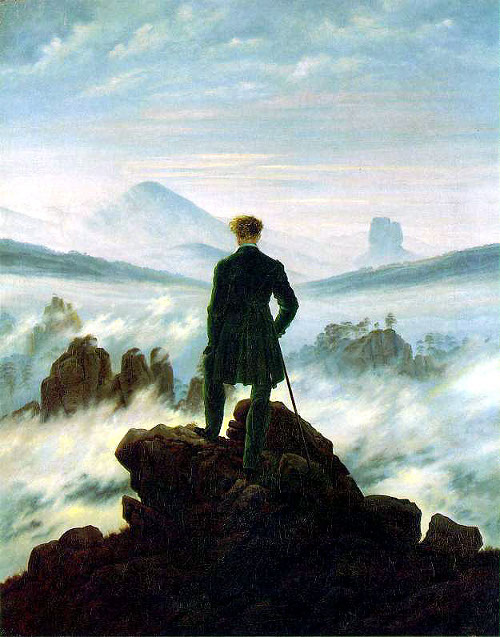
Okay, Mom: now you’re just creeping me out.
The temperature tonight is descending into the thirties. (Single digits, centigrade, for those of you who measure things that way.) After having fretted for weeks about the unusually warm winter we’ve enjoyed so far, this evening I feel the need to fret about the cold.
Nights like this I think back fondly on the ten years I lived in what is collectively referred to as South Florida: a few years in Hollywood, then a few more years in Fort Lauderdale. In that context, a cold winter meant wearing socks — and there, of course, I fretted about the absence of a traditional cycle of seasons.
I realize that this is bad habit: fretting about the way things are versus how they were, or how they may come to be. It is, however, a very human habit. History shows us that hearkening back — or sometimes forward — to a time that is different from the present is a basic component of human culture.
Three thousand years ago the Greeks of Homer’s time worshiped Zeus and his family of lovers and offspring, but looked back with nostalgia on a mythical Golden Age, without war and disease, when Kronos, father of Zeus, had ruled the universe.
Even before that, the cultures of the Near East spoke of a lost Paradise, deep in the past, from which mankind had been expelled, for reasons that varied from one mythos to the next.
The Romans, in their time, copied not only the statuary and the architecture of the Greeks, but their poetry, their philosophies, and their theater, because they saw the classical Greek traditions as the products of a better age than their own.

Caspar David Friedrich, “Wanderer above the Sea of Fog”, 1818
English Romantic poets like Wordsworth and Byron, and their American counterparts, such as Thoreau and Longfellow, spoke passionately of earlier times, simpler, more uncomplicated, uncluttered lives — a long, golden afternoon of human existence, somehow superior to our own, inhabited by “noble savages”, unsullied by the industrial constructs of the new age.
Today, social conservatives hearken back to “traditional family values”, a vague memory of halcyon days when which mothers wore pearls and high heels under their aprons and fathers wore neckties to the dinner table and never used words harsher than “darn” when speaking to their children.
In 1965, the highest-rated show on television was “Bonanza”, set in a semi-mythical Old West, where men were men, Little Joe always learned a valuable lesson from every misfortune, and nobody’s clothes ever seemed to get dirty. In second place was “Bewitched”, in which an immortal being of enormous power dedicated her life to learning how to make pot roast the hard way. Living up to the expectations of the age was a challenge for everyone: during that same year, 58 million new prescriptions for tranquilizers (and 108 million refills) were written; from 1963 (when we said goodbye to June Cleaver) to 1965 (when Samantha popped into our lives) tranquilizers accounted for 14% of all prescriptions written.1
This yearning for lost glories is appealing, but destructive. If we believe that our problems can be solved by simply returning to the past, then stagnation and frustration is inevitable. The world of 1950 contained fewer than half as many human beings as the world of today. In 1960 the the first oil well had yet to be sunk in the North Sea: today those reserves are largely exhausted. Average global temperatures in 1970 were 0.6 degrees cooler than in 2010. The world changes, and our place in it must change as well. We have to grasp the challenges we face now, using the the knowledge and the tools we have: chances are, a few decades hence, our grandchildren will be looking back at our lives with the same nostalgia and envy we feel watching re-runs of the “Andy Griffith Show.”
I know that winter isn’t forever. This evening I’ll put on another sweater and pull my chair closer to the heater, and tomorrow I’ll find something else to complain about. For all my pissing and moaning I know that for every winter there’s a spring, and I know that no matter how warm and toasty the good old days may appear through the filter of memory, I can’t go back. The past is where it belongs, behind me; wherever I am today, right now, is the best place for me to be.
Into my heart an air that kills
From yon far country blows:
What are those blue remembered hills,
What spires, what farms are those?That is the land of lost content,
A Shropshire Lad, part XL, by A. E. Housman (1859-1936)
I see it shining plain,
The happy highways where I went
And cannot come again.
* * *
